Life After AIDS
Desert Migration's Daniel Cardone on PrEP, coming out positive, and taking life with HIV one day at a time

“It’s been trendy for a while to support HIV, but it never really became ‘brave’ in the same way as cancer, or breast cancer, or things like that,” says Daniel Cardone. “One of the people we interviewed but whose story wasn’t included in the film said, ‘It’s not sexy anymore.’ And I think that’s true.”
Cardone is the writer and director of Desert Migration, a film chronicling the lives of 13 gay men from Palm Springs, Calif., who are long-term survivors of HIV/AIDS. For the Australian-born director’s subjects, Palm Springs was supposed to be an ending, a quiet, isolated place where they could resettle and allow the disease they were diagnosed with to run its course.
But the introduction of new generations of antiretroviral drugs changed all that. With the lifesaving medication, these gay men have now found themselves, as one puts it, “back from the dead,” struggling to cope with the inevitable aging process, their various health issues, the growing sense of isolation, even survivor’s guilt.

“The tribal inhabitants of this land always saw it as a healing place,” Cardone says of Palm Springs. “There were natural springs here — it’s an oasis, more or less. So it’s always had an association with being a healing, special place in the middle of the desert. There was always that draw of people coming here, so that when they did become sick, it seemed like a natural place to retreat to.”
In exploring the lives of the long-term survivors, Cardone, himself HIV-positive, came to closely examine his own life and appreciate his own good fortune.
“These people have lost so much more than I have,” he says. “A lot of them were literally on death’s door, and then kind of picked up and rebuilt their whole lives. They lost their friends, they lost their jobs, they lost their homes. I haven’t ever been in that situation. So putting myself in someone’s shoes like that made me so incredibly grateful for what I do have. And it also made me feel very privileged that they entrusted me to take their stories and share them with the world.”
To commemorate World AIDS Day, Cardone will appear in Washington for a Reel Affirmations-sponsored screening of his film on Friday, Dec. 4 at HRC. He’ll also take part in a follow-up panel discussion that will examine the ongoing problem of HIV/AIDS. Cardone admits he’s often shocked by the sheer ignorance surrounding HIV in mainstream society — even among members of the LGBT community, who still speak of HIV as if it were the height of the AIDS epidemic in the ’80s and early ’90s.
“I’ve been enveloped in a community here that is very HIV-aware, talks very openly about it, seems to be up on the knowledge, and it not oppressive or not attaching stigma to it,” Cardone says. “So you’re kind of living in the ghetto, where you think everything’s fine. And when you step out of that ghetto, you’re in shock that people still have these antiquated views about being HIV-positive.”
He believes the stigma surrounding the virus may stem from moral judgments. Society often casts those suffering from HIV/AIDS as dirty or as being punished for their actions, particularly at a time when sex is still often seen as shameful.
“I think there’s still this moral outrage and stigma associated with it that doesn’t go to any other disease, besides ones that are sexually transmitted or that result from blood-to-blood contact, such as intravenous drug use,” Cardone adds. “People think it’s a scandalous, dark thing that you did that caused you to become positive, so, therefore, you are a bad person. Like with Charlie Sheen, one of the questions has been, ‘How do you think you got it?’ And it’s irrelevant how he got it. But people still feel they have to ask that question.”
While Cardone strives for an objective tone in presenting his subject matter, he hopes the film will elicit reactions and provoke discussions. And the more powerful or emotional the reaction, the better — particularly if the viewer is willing to share their interpretation of the film and its impact on them.
“This is why I make movies. I want people to discuss them,” he says. “I don’t want to make films where you turn off your brain for an hour-and-a-half.”
METRO WEEKLY: Tell me about your childhood.
DANIEL CARDONE: Both my parents are Italian immigrants to Australia, so they came over when they were kids, and met and married in Australia. And they had me and my brother. We lived in Adelaide, South Australia — I spent twenty-five years there, growing up. We were raised Roman Catholic, went to a private school, but my parents got divorced pretty early on, which at that point was unheard of for a good Italian Catholic family. My mother went off to pursue a teaching career, and my dad was a real estate agent and then quit to become a painter. So that was the household we grew up in. Sort of a big Italian family, but a bit fragmented, I think you could say.
MW: Were you aware of your sexuality as a child?
CARDONE: Oh, yes, definitely. It was one of those things of never having to question my sexuality. It was always like, “Oh, that’s what I am.” So even the earliest memories I can have was definitely identifying “queer,” as such, that feeling of difference. And then that solidified into being attracted to other men. But more just a general feeling apart from being sexually attracted to men, just the feeling that you think about things differently. And so I more associate with the “queer” label, I think, because of that.
MW: What’s your earliest memory of being different?
CARDONE: I was always just that eccentric kid. I was talking like Quentin Crisp when I was six years old. My mother can quote me saying certain things, where I kind of look back and I say, “Oh my God, I was one of those children.” It wasn’t necessarily being camp, but more like a five-year-old who thinks he’s Oscar Wilde, but doesn’t have a concept of what Oscar Wilde actually is. And so I would have this accent, and talk in this English way. Even to this day, I don’t talk like anyone else in my family. I don’t have an accent like anyone else in my family. I kind of invented this way of talking. I was always wanting to be in an imaginative state of mind. So I was a very introspective child, but it was an incredibly rich world that I was inhabiting.

MW: Is that imagination and inventiveness what inspired your career in film?
CARDONE: I was always film-obsessed. My parents were always frustrated because if I wasn’t reading a book, I would want to watch a movie. And I wouldn’t go outside and play, I wouldn’t do anything like that. It was always books and movies, and then movies took over. I always wanted to be a filmmaker and to know how movies were made. It was a natural fit, because I was in Adelaide, and the only place that had a film course was Flinders University. I went there in 1989, I think, and was there for three years before I dropped out. So I never actually finished university. But I made quite a few movies while I was there.
And then I went to work for an organization called the Media Resource Center, which would help community groups, or minority groups, or anyone who wants to, really, get access to film equipment and editing materials and computers to help them make their own movies. So from an early point in my development, I was always working with underrepresented groups and helping them tell their stories. I think that was pretty influential in a way. Which is ironic, considering I’ve made a movie almost completely with white men, because it’s completely not how I lived my life, and really not where my interests lie in telling stories. But it just so happens to fit the demographic of where I am now.
MW: Is it a demographic you identify with because you are also HIV-positive?
CARDONE: Yes, I am HIV-positive. I’d feel very hypocritical if I made a movie where I asked other people to be very open about it, and I wasn’t open about it, too. I’ve been positive for about twenty years. But my experience was very different from a lot of men in the movie. I received my diagnosis in 1995. The protease inhibitors had been out for a little while. So the tide had somehow turned a little bit. And I also wasn’t in the thick of it. I was in a gay relationship, but I didn’t have a whole lot of gay friends, and certainly no one who had actually been directly affected by this.
And it turned out that my local doctor, whom I saw regularly, happened to be one of the state’s foremost authorities on HIV/AIDS. I was very lucky that I received the diagnosis from him. He immediately put me at ease. The way it was looked at, at that particular time, was you’d get tested every three months and want to take your viral load and your T-cells, and if that was holding, they wouldn’t put you on medication. For that I’m actually kind of thankful, because I missed any of the meds that might have had harmful side effects at that time. So that kind of went along for seven years before my viral load started to creep up, and they finally put me on meds. It’s a lot different from today, where I think the attitude is, “Put them on meds straight away, and let’s get that viral load undetectable as soon as possible,” which, as we’ve seen, is the best way to prevent passing it on to anyone.

MW: Some people liken revealing their serostatus to telling people they’re LGBT — people with HIV/AIDS also have to “come out.” Do you find there are parallels between those two experiences?
CARDONE: I think in a lot of ways it’s harder to come out as HIV-positive. Especially now, there’s so much positive reinforcement about being gay and being proud and things like that. But still, as we’ve seen, especially with Charlie Sheen coming out, there’s a whole lot of misperceptions in the media about HIV, and the way they’re still talking about it as if it’s still a dirty thing, as if it’s something you should be ashamed about, it’s still scandalous. So I think it’s much harder to come out as HIV-positive.
My own personal story is a lot of my close friends knew, but I didn’t tell my parents until late last year. And one of the reasons I didn’t tell them was I didn’t want them to worry, I didn’t want them to freak out. Because I knew the early exposure they had to it was pretty much when AIDS was a “deadly plague” headline. And so their thinking probably hadn’t advanced as much. But then last year, I was thinking, “I’m making this film, it’s going to come out. I need to tell them first before I can talk openly in the media about it.” I was realizing that I was in the closet with myself.
My partner is also HIV-positive, and all of our close friends know. But in terms of letting my parents know, and letting the larger straight community that I was friends with know, that’s where I was really having difficulty coming out about it. At first I was like, “They don’t need to know.” But then finally I thought, “No, they need to know everything.” And it’s been fine. The positive response I received from my parents was actually very empowering and pleasing to me. There was no judgment at all. They were just concerned for my welfare, and could see how good I was doing, and that I wasn’t unwell. And so they were really just happy that I was dealing with it, and that it was okay, and they completely understood why I had kept it a secret from them as well. That was another thing that I thought they’d be angry about. “Oh, my god, you had this big thing, and you didn’t tell us.” But, no, they were really great about it. And I haven’t had any sort of negative response to disclosing my status, except among people on Scruff and things like that. You face a bit of ignorance there, which is most unpleasant.
MW: How did you get the idea for Desert Migration, to profile these 13 people who were long-term survivors of HIV?
CARDONE: I don’t remember the initial spark of the idea. I do remember I needed to make a film. I call myself a filmmaker, and I hadn’t made a film in two years. I was doing a lot of writing, but I needed to make something, so I was looking around the environment, thinking, “What’s in front of me? What can I pick up from?” And I had just worked shooting second unit on another documentary, The Life and Crimes of Doris Payne. That inspired me. I thought, “Well, I can pull together a documentary on a small budget,” and it occurred to me that a lot of my friends had stories that I hadn’t seen documented on film before. There’s been films like We Were Here, which is a particularly moving portrait of what had happened in San Francisco during the epidemic years. And then there was How to Survive a Plague, which was almost sort of a documentary-thriller about how ACT UP and organizations managed to get healthcare for people, and access to drugs. But it occurred to me that there was nothing really about what’s happening to people who lived through this, what are their lives like, and I wanted to do something that was a little more philosophical and a meditation on aging, and purpose in life. People who have lost almost everything, how do they get up and get on with their lives?
There’s an unwritten rule of documentaries where the first thing you need is access to your subjects. I had great access to all of these people and they’re in this awesome landscape of the desert, so it just seemed like a natural fit to me. Doing it in this particular style came from things that I’ve wanted to pursue since film school, which was to tackle documentary subjects in a different way, in a very cinematic ways. So I set some parameters: I said, “We’re not going to have any talking heads. I want to have it focus on close-ups of faces combined with landscapes.” And it basically sprung from there, and it kept getting bigger and bigger and bigger.
MW: How did you decide which people to profile?
CARDONE: It was a bit of a scattershot approach at first. I was just talking to everyone. I ended up interviewing thirty people, and then just kept whittling it down. We filmed about twenty, I think, and then cut it down to the thirteen you see. So it was quite a wide swath of people, but I think it came down to a combination of elements. One was how people came across visually, and whether their story was particularly unique or different. And whether they were saying something that no one else in the film had said already. And if they were, which person had said it better. Which person was more representative of the idea I wanted to express. And which people had more interesting things going on in their lives that I could film them doing.
Obviously, someone like Doc in the film is a natural, because visually he’s covered in tattoos, he looks interesting. He works part-time in a piercing parlor. He’s in AA and sponsors people. He rides a motorcycle. So there’s a lot going on with him, visually, that I can use. Most people seem to have a combination of those that I thought would make a good film. At certain times you had to make a tough call on the basis of that, like someone you liked a lot personally doesn’t really have what it takes to hold people’s interest on film. So you’re going back and forth on decisions on the basis of what’s important to tell, what do I want to tell, and what works with the overall flow of the film, and sometimes you have to make really tough calls.

MW: All of the subjects in the film are older gay men of a certain age. Did you ever consider using a woman or a younger gay man, for example? Or did you want to focus on people who fit a certain profile?
CARDONE: They definitely had to be of a certain age, so covering somebody younger was not part of my framework. They all had to be people who had experienced those mid-’80s horror years, for lack of a better term. In terms of featuring a woman, I did think seriously about it. And I decided, in the end, that I was just going to focus on this admittedly very small cross-section, because it felt more cohesive. It felt like if I went with a female story, it would take it out on a different tangent, and I was having trouble keeping everything together and focused as it was. So I made this choice to keep it as a very unified cross-section, even though I realized that I was probably limiting myself in that way. It wasn’t necessarily a decision that was based on “I don’t think this story is interesting,” as much as “I think this is going to go off on a tangent, and I won’t be able to give it the attention it deserves.” So it was making that decision on the basis of that, that I didn’t think I could focus on the story enough of a female perspective, and make it unique and interesting, without it seeming like something that was too separate from the whole of the film.
I’m fully aware the scope is very limited: we’re looking at a very specific group of gay men, in a specific place, at a specific time. I think what is universal for everyone is that we’re all growing old, and we’re all going to face difficulties and infirmities. We need to address those things in terms of how we live our lives on a day-to-day level. My personal belief is that the choice is with us as to how we want to live our lives, or present to the world, or deal with the challenges live presents to us. And the challenge of the movie to any audience is to say: what choices are you making? How do you choose to live your life? I think that’s a problem that everyone has, whether you’re gay, straight, HIV-positive or not. Particularly making that choice in the face of growing older, losing friends, not feeling as good as you used to. But then it’s about finding that resilience and strength to then go on choosing actions that make your life a more positive place to be. I think that is the overall theme of the film.
MW: The documentary is very heavy at times, with several sad moments. Did you ever worry about addressing heavy issues without overwhelming your audience?
CARDONE: I did. My thing is, I don’t find it heavy at all. This is not depressing to me. And maybe it’s just because my level for depressing is really high — I can watch really dark stuff and not have it affect me at all. I saw it as just honest. I thought, I just need to keep this honest, and if they’re dark, they’re dark. I’m not going to put a happy, rosy glow over this, and end it with a platitude about “Let’s all hold hands and think positively and everything will be fine.” Because you have to look things dead-on and confront them for what they are.
I think the takeaway from the movie, or what I hope people will get from it, is that life goes on. Life perseveres. We find a way. All of these people are still getting on, even if they’re depressed one day, or their back is covered in sores, or they’re having side effects from the medication. They’re still getting up every day. They’re still getting on with their lives, even if their lives basically consist of folding laundry and going to the gym. They still get up. That’s why the film is structured like a single day, and then there’s a morning of the next day. Posing that question at the end of the movie: “I’ve got a day. What am I going to do with it?” That’s the challenge.
And that’s the challenge for every single person who’s alive in the world. Some people don’t even question that. Some people just get up and get on with their day. Other people have huge trauma to overcome to get to the next morning, but they still get up and do it. It’s more about that idea of finding purpose, and still finding the will to get up and go. To me, that’s not a depressing thing, but an honest thing, and it doesn’t put the blinders on.
MW: You don’t shy away from giving glimpses of sexuality in the movie. You show Eric having a hook-up come over and he sets up the sling. You see Steve and Jeff in bed together. Did you do that intentionally, or was it just part of covering their everyday lives?
CARDONE: It was absolutely 100 percent intentional. And not so much because they were HIV-positive, but that they were older men. It was important for me to show older sexuality on the screen, and not in like, just the sexy “muscle daddy” kind of way. It was more to show that your libido doesn’t go away just because you are HIV-positive and over 50 or over 60. You still have those desires. And I wanted to show that. I wanted to show older skin and flesh and nudity and sexual activity without it turning into porn. So it was important to show that, and show it in a very matter-of-fact kind of way. I wanted to show that socialization, the flirting, the sexual activity, the intimacy. I didn’t want to shy away from any of that. And so it was important that I just put it up there. They can see Doc’s pierced scrotum, they can see Jeff and Steve getting cuddly in the morning, they can see Eric about to fist someone in the sling. It’s all out there. And I’m not judging it, I’m not commenting on it, I’m just putting it up there in an objective fashion, and people can react to it however they want.

MW: Have newer advances like PrEP changed the way that some people in the community are looking at HIV/AIDS?
CARDONE: I know it’s changed the landscape for me personally. PrEP started emerging about halfway through the filmmaking process, so I couldn’t really find a way to work it into the film in a meaningful way. But every one of the men in the film said that if something like PrEP had been around, they would have taken it, no questions asked. They would have just said, “I’m doing this.” And so a lot of them seem bewildered that there’s even a debate about making PrEP more readily available, or advocating PrEP as a prevention method. They find that mystifying. They’re like, “All of our friends died from this. If we had had access to this, we would have been begging to take the drug, if we could have avoided this. So why are we debating it now?”
A special screening of Desert Migration, presented by Reel Affirmations in commemoration of World AIDS Day, will be held on Friday, Dec. 4, at 7 p.m. at the Human Rights Campaign, 1640 Rhode Island Ave. NW. The screening will be followed by a discussion panel featuring Daniel Cardone. Tickets start at $25. Visit reelaffirmations.org or call 202-682-2245.
Support Metro Weekly’s Journalism
These are challenging times for news organizations. And yet it’s crucial we stay active and provide vital resources and information to both our local readers and the world. So won’t you please take a moment and consider supporting Metro Weekly with a membership? For as little as $5 a month, you can help ensure Metro Weekly magazine and MetroWeekly.com remain free, viable resources as we provide the best, most diverse, culturally-resonant LGBTQ coverage in both the D.C. region and around the world. Memberships come with exclusive perks and discounts, your own personal digital delivery of each week’s magazine (and an archive), access to our Member's Lounge when it launches this fall, and exclusive members-only items like Metro Weekly Membership Mugs and Tote Bags! Check out all our membership levels here and please join us today!





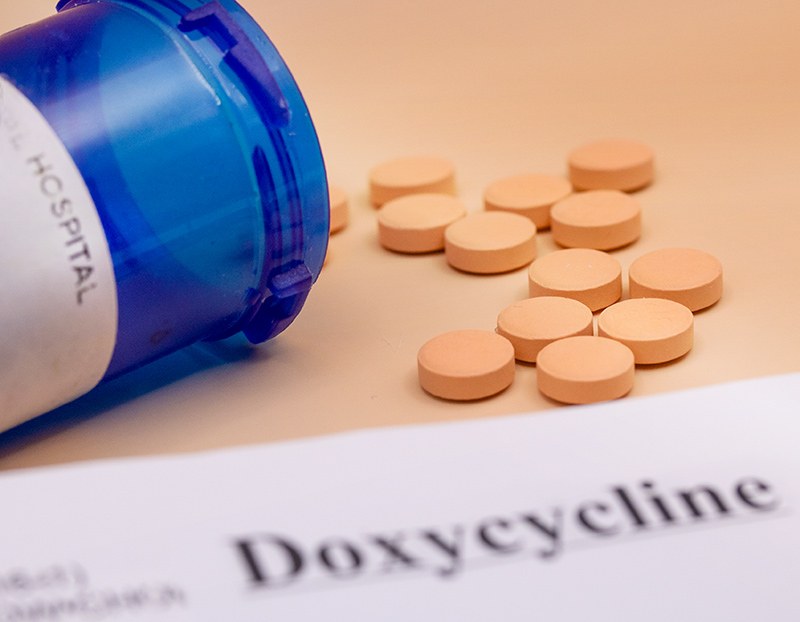
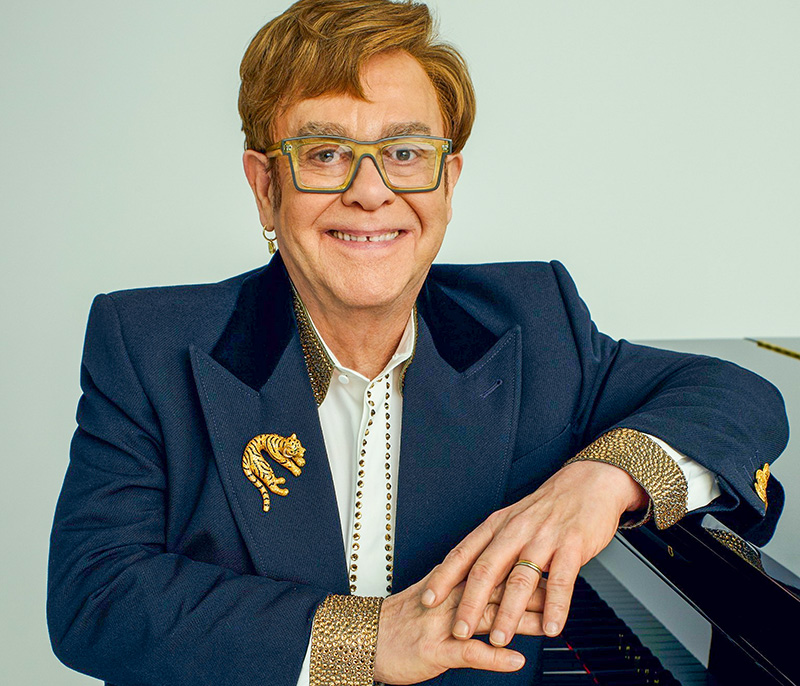
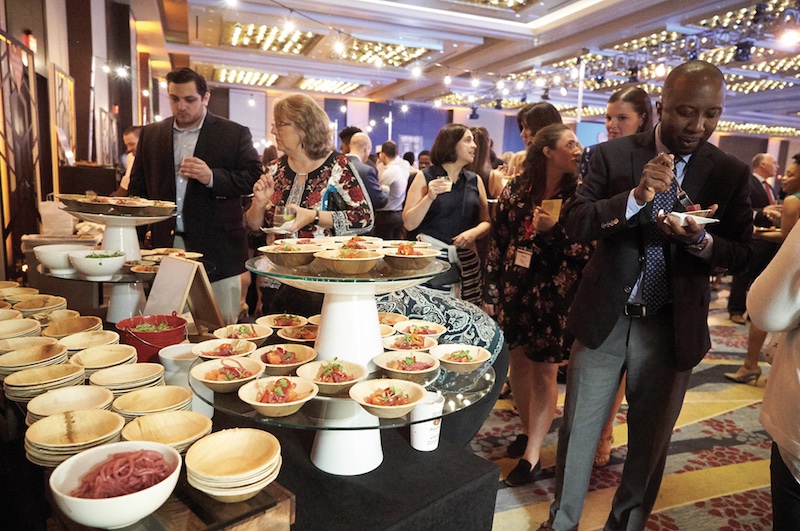













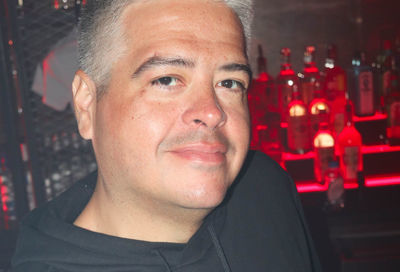
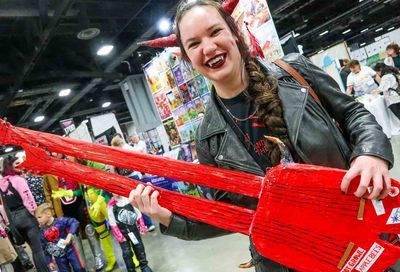
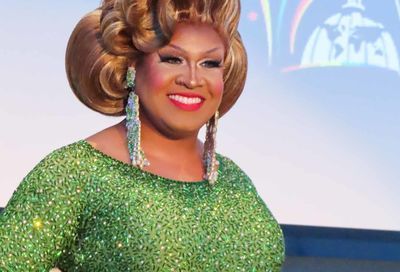
You must be logged in to post a comment.